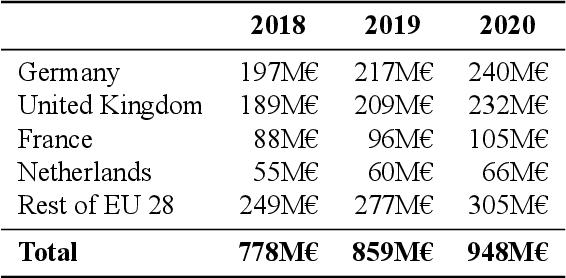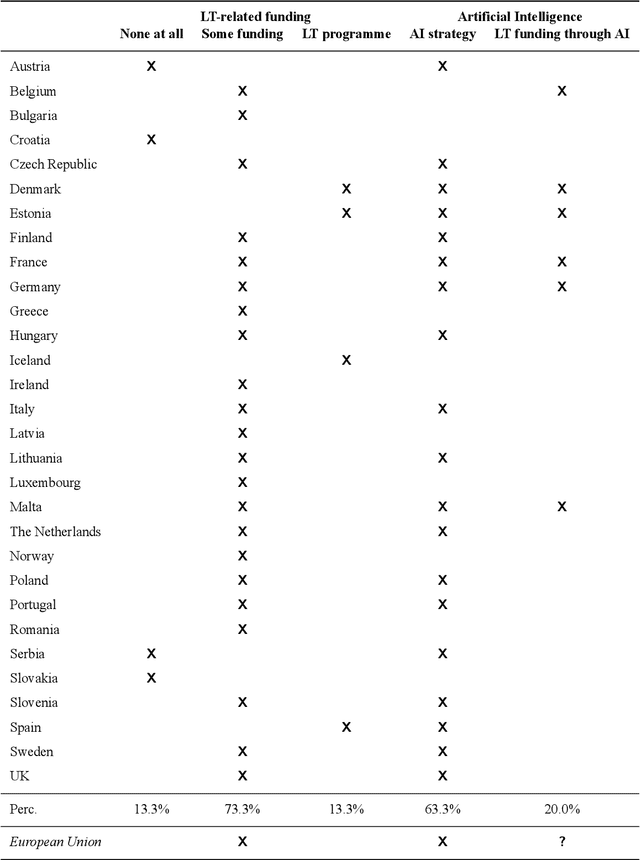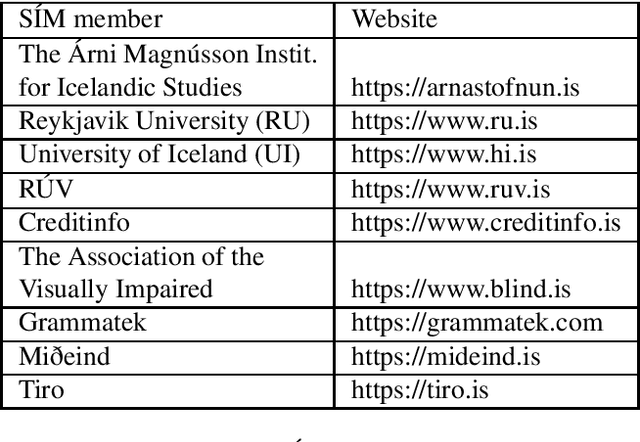Eiríkur Rögnvaldsson
The European Language Technology Landscape in 2020: Language-Centric and Human-Centric AI for Cross-Cultural Communication in Multilingual Europe
Mar 30, 2020

Abstract:Multilingualism is a cultural cornerstone of Europe and firmly anchored in the European treaties including full language equality. However, language barriers impacting business, cross-lingual and cross-cultural communication are still omnipresent. Language Technologies (LTs) are a powerful means to break down these barriers. While the last decade has seen various initiatives that created a multitude of approaches and technologies tailored to Europe's specific needs, there is still an immense level of fragmentation. At the same time, AI has become an increasingly important concept in the European Information and Communication Technology area. For a few years now, AI, including many opportunities, synergies but also misconceptions, has been overshadowing every other topic. We present an overview of the European LT landscape, describing funding programmes, activities, actions and challenges in the different countries with regard to LT, including the current state of play in industry and the LT market. We present a brief overview of the main LT-related activities on the EU level in the last ten years and develop strategic guidance with regard to four key dimensions.
Language Technology Programme for Icelandic 2019-2023
Mar 20, 2020
Abstract:In this paper, we describe a new national language technology programme for Icelandic. The programme, which spans a period of five years, aims at making Icelandic usable in communication and interactions in the digital world, by developing accessible, open-source language resources and software. The research and development work within the programme is carried out by a consortium of universities, institutions, and private companies, with a strong emphasis on cooperation between academia and industries. Five core projects will be the main content of the programme: language resources, speech recognition, speech synthesis, machine translation, and spell and grammar checking. We also describe other national language technology programmes and give an overview over the history of language technology in Iceland.
 Add to Chrome
Add to Chrome Add to Firefox
Add to Firefox Add to Edge
Add to Edge